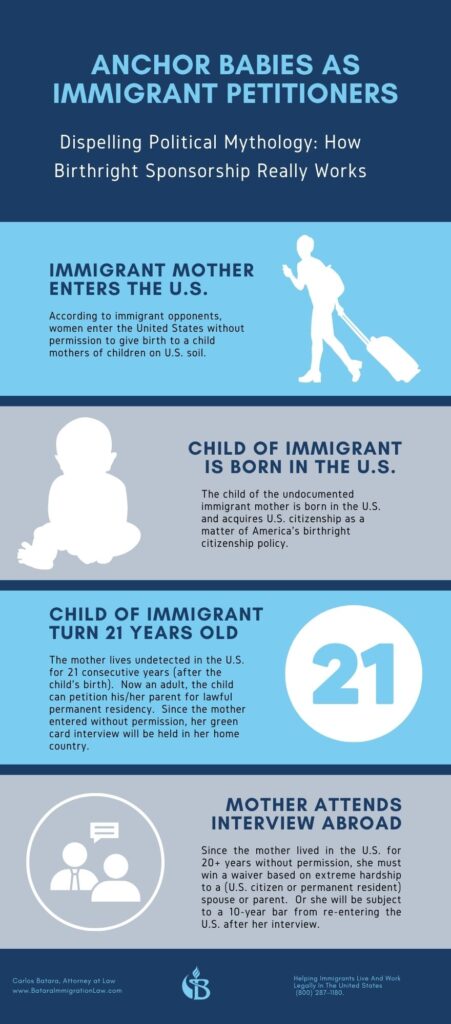
Anchor Babies: A Comprehensive Examination of a Controversial Term
Introduction
The term "anchor baby" has become a contentious topic in recent years, sparking heated debates and fueling political rhetoric. This article aims to provide a comprehensive analysis of the term, exploring its origins, legal implications, and the complex social and political issues surrounding it.
Origins and Definition
The term "anchor baby" emerged in the early 2000s as a derogatory label for children born in the United States to undocumented immigrants. The term implies that these children serve as an "anchor" for their parents, allowing them to remain in the country and eventually obtain legal status.
Legally, the term "anchor baby" has no basis. Under the Fourteenth Amendment to the U.S. Constitution, any child born in the United States is automatically a U.S. citizen, regardless of their parents’ immigration status. This principle is known as birthright citizenship.
Legal Implications
The birthright citizenship of anchor babies has significant legal implications. As U.S. citizens, they are entitled to all the rights and privileges afforded to other citizens, including access to education, healthcare, and social services. They can also sponsor their parents for legal residency and eventually citizenship.
However, the legal status of anchor babies has been challenged by some who argue that birthright citizenship should not apply to children born to undocumented immigrants. They contend that it encourages illegal immigration and creates a burden on taxpayers.
Social and Political Issues
The issue of anchor babies has become intertwined with broader debates about immigration and national identity. Some view anchor babies as a threat to national security and a drain on resources. Others argue that they are innocent children who should not be penalized for their parents’ actions.
The term "anchor baby" has been used to justify restrictive immigration policies, such as proposals to end birthright citizenship or make it more difficult for undocumented immigrants to obtain legal status. These policies have been met with strong opposition from immigrant rights advocates and civil liberties groups.
Economic Impact
Studies have shown that anchor babies have a positive economic impact on the United States. They contribute to the workforce, pay taxes, and boost consumer spending. In the long run, they are likely to have higher levels of education and income than their parents.
However, some argue that the costs of providing social services to anchor babies and their families outweigh their economic contributions. They point to the potential strain on healthcare, education, and other public programs.
Ethical Considerations
The issue of anchor babies raises complex ethical questions. On the one hand, it is argued that children should not be punished for the actions of their parents. On the other hand, some believe that it is unfair to grant citizenship to those who have not followed the proper immigration procedures.
The ethical implications of anchor babies extend beyond the individual children. They also affect the broader society and the principles of justice and equality upon which it is founded.
Public Opinion
Public opinion on anchor babies is divided. According to a 2018 Pew Research Center poll, 52% of Americans believe that children born in the United States to undocumented immigrants should be U.S. citizens, while 43% believe they should not.
The issue has become increasingly polarized in recent years, with strong opinions on both sides. This polarization has made it difficult to find common ground and develop a consensus on how to address the issue.
Conclusion
The term "anchor baby" is a loaded and controversial one that has sparked intense debate. While it has no legal basis, it has been used to justify restrictive immigration policies and raise concerns about the economic and social impact of undocumented immigration.
The issue of anchor babies is complex and multifaceted, involving legal, social, political, and ethical considerations. It is a topic that will likely continue to be debated for years to come.
As the United States grapples with the challenges of immigration, it is important to approach the issue with compassion, understanding, and a commitment to finding solutions that are both fair and effective.
